Ancient Soul (Mbah Jhiwo)
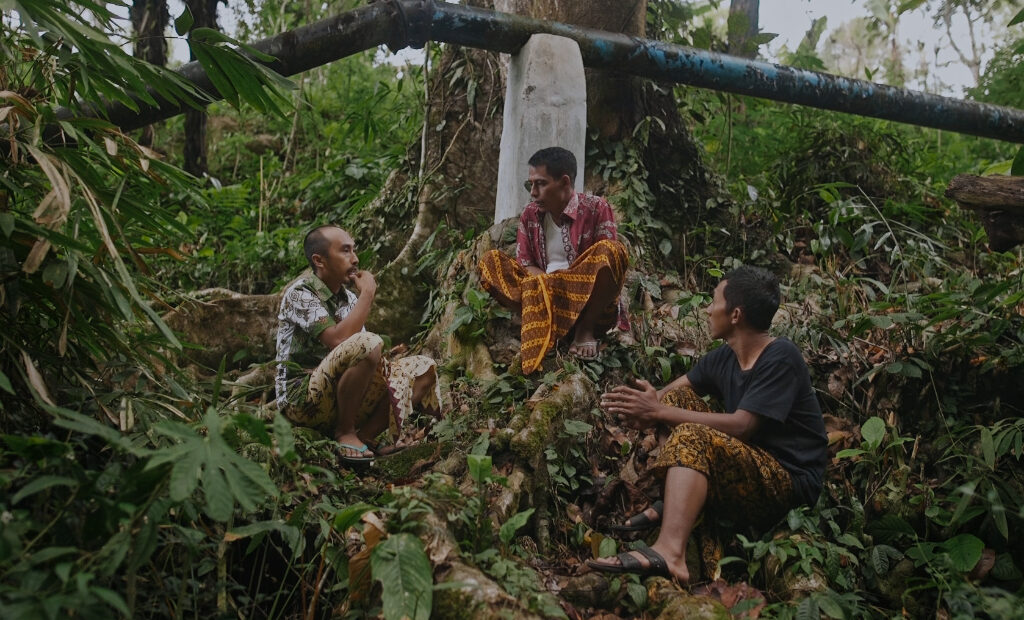
Ancient Soul is a brilliant, beguiling work that contains an audacious narrative premise and exquisite compositions. Nonetheless, as a docu-fiction (crafted plot, nonprofessional actors), it’s concerned with concrete nouns more than surplus adjectives. The geology of the setting, Java, underscores the lives of the inhabitants, supplying both sublime beauty and natural resource. The tropical rainforests stand bathed in cumulous smoke while volcanic terrain disaggregates the visual landscape. Workers mine for sulphur (“Devil’s Gold”) through the mist, reconciling the dignity of their labour with the distinct environment, clarifying the coexistence of human and rock.
The story of Yono (Yono Aris Munandar), a young man who lives on the Indonesian island, is repeated three times, each under different thematic auspices: spirituality, religion, money. Together, the tales intertwine and refract through one another, eliciting in the viewer a prevailing sense of uncanny circularity. The sum of events is that Yono’s wife has left him, and his diabetic mother is ill, so he must place his faith in a succession of authorities – mystics, God, doctors and cryptocurrencies – to extricate him from the mess. The general tendency to use static shots feeds a monovalent rhythm, upended in the extraordinary close, revealing the filmmaker through the eyes of the object.
The opening is a short scene: a man and a woman sit side by side, eyes cast downwards. In the stillness of the shot, there seems to be an imperceptible breeze. Eventually, the woman remarks, “We can’t change our fate.” This amounts to a statement of intent: the subsequent tripartite structure offers a fable of determinism, in which, no matter the conditions or contingencies, the outcome remains the same. This imbues proceedings with a peculiar melancholy that leans towards comic reflection rather than despondency. Small ironies abound: scenic idylls are posed against gaudy Prada cushions; an elder man offers to assist Yono, claiming to be both shaman and masseuse.
Semantics of magic and spells are threaded through the sections. The appeal of Dukuns, monotheism and Bitcoin stem from fundamental motivations: the desire for rescue, combined with the sensibility of escape. Money, usually a panacea for uncertainty, disappears just like the “wind” or a “ghost”. Motifs of collapse are portrayed in physical, mortal images: abrupt cuts find women lying on the floor, catatonic and seemingly possessed. The surrounding water is presented as both poison and cure, the polluted lakes that would purify sin.
In his first feature, Spanish writer-director Alvaro Gurrea has risked a form of ethnographic orientalism by framing the cast through his gaze and vision. While recent films have taken a self-conscious and elaborate approach to revealing the biases of the documentarian (Trương Minh Quý’s The Tree House, for instance), Gurrea favours a monomaniacal depiction of his subjects, before finally flipping the script. Here, under a waterfall, Yono grabs the moving camera and ascends the vertiginous slopes, functioning as a partial reclamation of imaginative agency.
Joseph Owen
Ancient Soul (Mbah Jhiwo) does not have a UK release date yet.
Read more reviews from our Berlin Film Festival 2021 coverage here.
For further information about the event visit the Berlin Film Festival website here.
Watch the trailer for Ancient Soul (Mbah Jhiwo) here:












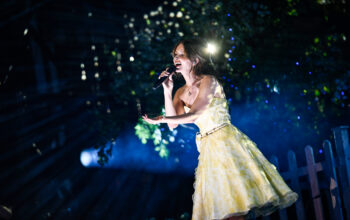

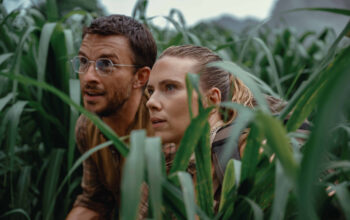
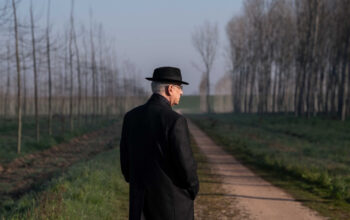







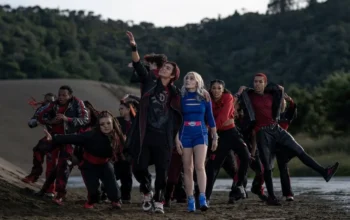
Facebook
Twitter
Instagram
YouTube
RSS